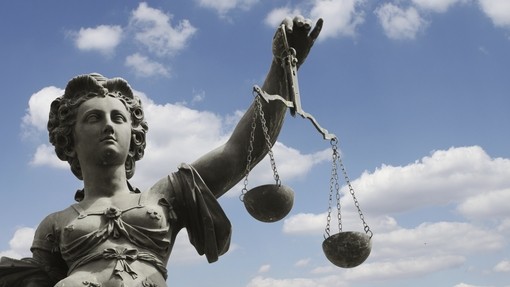Harassment: how to handle complaints

Details
Recent weeks have seen story after story emerge in the news making allegations of unlawful discrimination and harassment, and criticising the response (or lack thereof) to those allegations.
In the UK, the main focus of press attention has surrounded the FA’s treatment of England footballer Eniola Aluko (who alleged race discrimination), British Cycling’s treatment of GB cyclist Jess Varnish (who alleges sex discrimination), and multiple discrimination and harassment complaints made by MP’s and Westminster staffers.
In the USA, the scandal started with allegations of historical sexual harassment made against movie producer Harvey Weinstein. This led to the ‘#MeToo’ campaign on social media which has seen members of the public, politicians and many famous actresses speaking out about their own experiences of sexual harassment. Notably, it is not just sexual harassment against women which has been revealed, with film star Kevin Spacey being the latest big-name caught up in the aftermath after allegations emerged of him sexually assaulting young men.
All of this press coverage has got people talking about discrimination and harassment in a way never before seen. Up and down the country in their sitting rooms and workplaces people are talking about both their own experiences and the allegations which are emerging in the press on a seemingly daily basis. Women in particular are being encouraged to share their own stories, which may have in many cases been hidden for a very long time. All of this leads to a climate in which employers may face an increase in harassment complaints (some of which may relate to historical allegations). How should these complaints be handled?
- Always properly and thoroughly investigate any complaints of discrimination, harassment or other unprofessional behaviour made by, or against, your current staff. Make sure any investigation is impartial. There is often a ‘knee-jerk’ reluctance to accept that discrimination or harassment has occurred, so try to take a step back and consider the situation from the perspective of an outsider. Make sure you interview all of the relevant witnesses (e.g. those present when the alleged incidents occurred) and consider any supporting evidence (e.g. emails, text messages, CCTV)
- There may be additional considerations if a complaint is historical. For example, the fact that the complainant is out of time to bring a discrimination complaint, may not in itself mean you should not investigate their complaints (especially if lessons can be learned from the situation). However, you will need to think carefully about whether or not a fair investigation is still possible e.g. do the alleged discriminator and any relevant witnesses still work for you? Have memories faded too much over the passage of time?
- It may also be difficult to investigate incidents that allegedly took place outside of work in employee’s personal time. However, employers may still be liable for allegations that take place at events connected with work, such as office parties or during work-related trips abroad
- Where allegations have been reported to the police, the employer may also need to decide whether or not to carry on its investigation while the criminal proceedings are continuing
- Do not let staff get away with discrimination or harassment because they are ‘high performers’, or because it’s their ’first offence’. These are not valid excuses for discrimination or harassment. Crucially, do not attempt to sweep any allegations of discrimination or harassment under the carpet, as doing so often makes things worse in the long run
- Do not punish the complainant or threaten to dismiss them. The employer will be liable for any such treatment, and any dismissal motivated by a complaint about discrimination or harassment will be automatically unfair
- A robust approach to equal opportunities can provide an employer with a defence to any discrimination complaints (including those for sexual or other unlawful harassment) on the basis that they have taken ‘reasonable steps’ to prevent discrimination from occurring. What is reasonable will differ from employer to employer, but an employment tribunal will ordinarily expect there to be an equal opportunities policy and regular equal opportunities training as a minimum
Our employment team have considerable experience of conducting investigations into discrimination, harassment and bullying on behalf of employers. We can also provide your employees with a thorough equal opportunities training programme (appropriate to the level of employee), so as to maximise your chances of defending claims of this nature. If you would like further information about these services please contact us.






